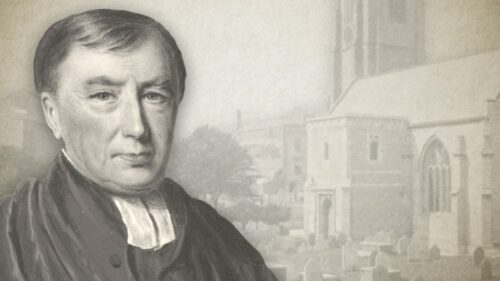
August 13—Morning Devotion
“And every oblation of thy meat-offering shalt thou season with salt; neither shalt thou suffer the salt of the covenant of thy God to be lacking from thy meat-offering: with all thy offering thou shalt offer salt.”—Leviticus 2:13
Ponder over these words, my soul, and looking up for grace, and the divine teachings, see whether Jesus is not sweetly typified here. Was not Jesus the whole sum and substance of every offering under the law? The Holy Ghost taught the church this, when he said, “the law was a shadow of good things to come, but the body is of Christ.” And did not the church, by faith, behold him as the salt which seasoned and made savoury the whole? Moreover, as all the sacrifices were wholly directed to typify him who knew no sin, but became sin for his people; the seasoning the sacrifice with salt, which was also a type of Christ’s purity and sinlessness, became a sweet representation, to denote that a sinner, when he came with his offering, came by faith; to intimate that he looked for acceptance in the Lord as his sacrifice, and for preservation in the salt of his grace, in Christ Jesus. And who then, among believers now, would ever approach without an eye to Jesus, and the seasoning with this salt all his poor offerings. Lord, grant that the salt of the covenant of my God may never be lacking; for where Jesus is not, there can be no acceptance. Lord, let me have this salt in myself, and may every renewed presentation of myself be there salted. Then shall I be as the salt of the earth, amidst not only the putrefaction of the world, but the corruptions of my own heart. Lord, say to us, and impart the blessing of thyself in saying it, “Have salt in yourselves;” and then shall we have peace with thee, and with one another.
Robert Hawker (1753-1827) was an Anglican (High-Calvinist) preacher who served as Vicar of Charles Church, Plymouth. John Hazelton wrote of him:
“The prominent features…in Robert Hawker's testimony…was the Person of Christ….Dr. Hawker delighted to speak of his Lord as "My most glorious Christ.” What anxious heart but finds at times in the perusal of the doctor's writings a measure of relief, a softening, and a mellowing? an almost imperceptible yet secret and constraining power in leading out of self and off from the misery and bondage of the flesh into a contemplation of the Person and preciousness of Christ as "the chiefest among ten thousand and the altogether lovely." Christ and Him crucified was emphatically the burden of his song and the keynote of his ministry. He preached his last sermon in Charles Church on March 18th, 1827, and on April 6th he died, after being six years curate and forty-three years vicar of the parish. On the last day of his life he repeated a part of Ephesians 1, from the 6th to the 12th verses, and as he proceeded he enlarged on the verses, but dwelt more fully on these words: "To the praise of His glory Who first trusted in Christ." He paused and asked, "Who first trusted in Christ?" And then made this answer: "It was God the Father Who first trusted in Christ."
Robert Hawker on the Biblical Covenants (Complete)
Robert Hawker's Poor Man's Morning Portions





